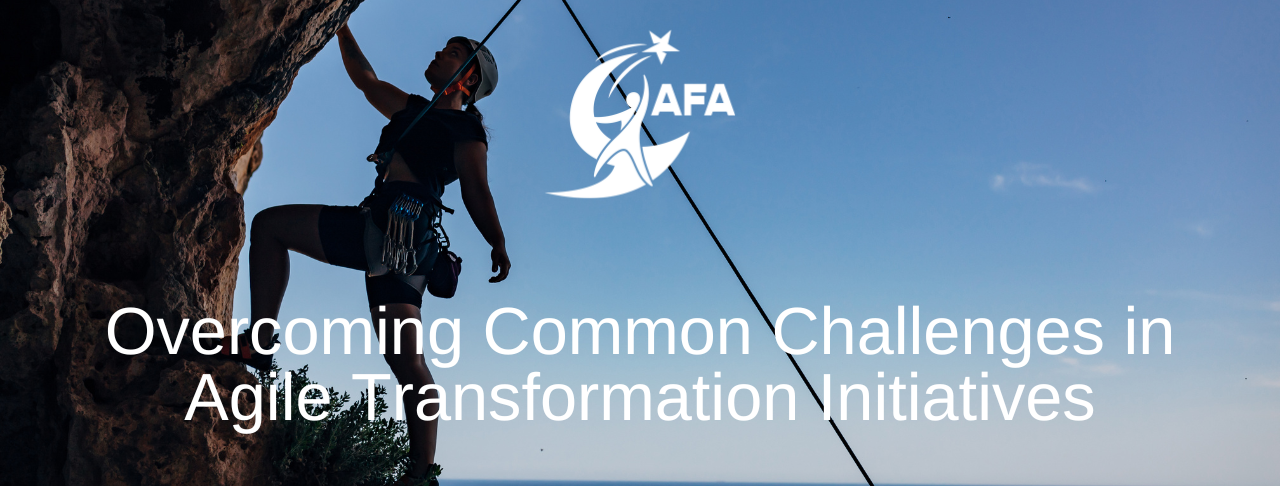
Using OKRs for Business Transformation
OKRs offer a powerful framework for guiding business transformation through focused objectives and measurable results. By understanding the definition of OKRs, getting started with clear objectives and key results, avoiding common pitfalls, and measuring success effectively, organizations can leverage OKRs to drive growth, innovation, efficiency, and realignment with their vision.

The Role of Agile Conflict Resolution in Driving Organizational Change
To successfully drive organizational change through agile conflict resolution, it is crucial to foster open communication among team members. This promotes a culture of transparency where conflicts can be addressed promptly and constructively. By actively listening to each other's perspectives and working collaboratively to find solutions, teams can navigate through challenges more effectively and drive positive change within the organization. Remember, the key to successful agile conflict resolution lies in embracing conflict as an opportunity for growth and continuous improvement.

How to Achieve High Performance with an Agile Transformation Strategy
An agile transformation can boost your team's performance by encouraging adaptability and efficiency. By implementing agile practices, your team can respond swiftly to changes in the market or project requirements. This transformation strategy focuses on continuous improvement and collaboration to enhance overall productivity and innovation within your organization.

Overcoming Common Challenges in Agile Transformation Initiatives
Agile transformation is all about adapting quickly and efficiently to change within an organization. When a company undergoes agility transformation, it aims to become more flexible, responsive, and innovative in its operations. This involves rethinking processes, structures, and mindsets to foster a culture of continuous improvement and adaptability.

Agile Team Dynamics
To achieve success in Agile team dynamics, effective communication is essential. It's important that team members openly share ideas and feedback to ensure everyone is on the same page. Collaboration is key in Agile teams, where each member has a specific role but works together towards a common goal. Regular meetings and stand-ups help keep the team aligned and focused. Embracing flexibility and being open to adapting to changes promptly are also crucial in Agile environments. By fostering a culture of trust and accountability, Agile teams can overcome challenges and achieve success together.

Organizational Agility: The Key to Sustaining High Performance in a Fast-Paced World
To sustain high performance in today's fast-paced world, organizations must continually adapt to changing conditions. This means being flexible and responsive to new challenges and opportunities, adjusting strategies and processes as needed. By fostering a culture of adaptability and agility, organizations can stay competitive and achieve long-term success.

Leaders as Coaches
Leaders are no longer just expected to command and control their teams. Instead, they are increasingly seen as coaches who guide, support, and empower their employees to achieve their full potential. This shift in leadership style is crucial for fostering a culture of collaboration, innovation, and continuous improvement.

Wednesday Wisdom - High Performing Teams: Learning Mindset
The last Wednesday Wisdom episode focuses on maintaining a learning mindset to help teams adapt, innovate, and thrive in their organization's culture.

Wednesday Wisdom - High Performing Teams: Decision-making Process
Discover the key to effective decision making in high-performing teams and boost your organizational culture with this Wednesday Wisdom episode.

Wednesday Wisdom - High Performing Teams: Respect Diversity
Learn about respecting diversity within teams to foster strength, innovation, and inclusivity on Wednesday Wisdom with Agility for All
Search

WELCOME TO THE AFA LEARNING PORTAL
We offer loads of free information here in the blog and also in our
resource library
AFA provides coaching, consulting, and training programs. In addition to specialized consulting, you have the option to choose from:
- group coaching programs
- masterclasses
- 1-week intensive offsites
Our programs are designed to help your organization to:
- Maximize Employee Engagement
- Foster Self-Organization
- Encourage Innovation
- Attain Higher Performance
- Be More Agile
